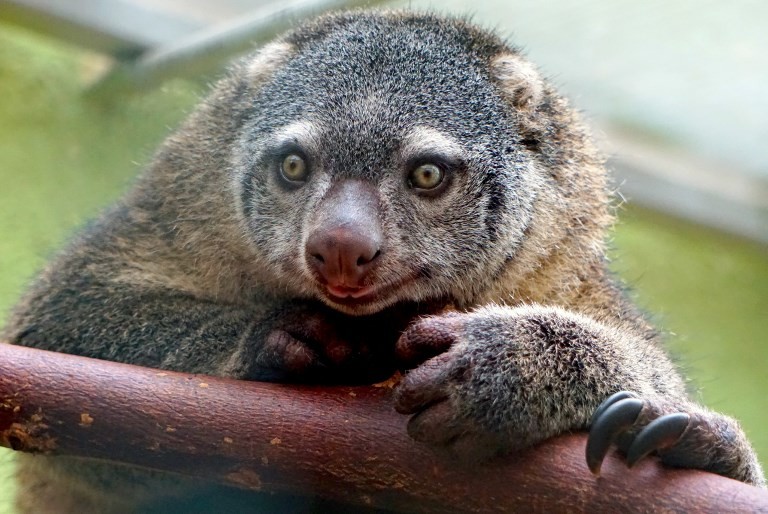Popular Reads
Top Results
Can't find what you're looking for?
View all search resultsPopular Reads
Top Results
Can't find what you're looking for?
View all search resultsRare Sulawesi bear cuscus born in captivity for first time
Change text size
Gift Premium Articles
to Anyone
T
he first Sulawesi bear cuscus to have been born in captivity is thriving at a zoo in Poland, but staff said they only realised the rare tiny marsupial had arrived when its mother's pouch began to move.
"It must have been a couple of weeks, or even months, after it was born that we noticed something moving inside the female's pouch and then, a tail popped out!" Radoslaw Ratajszczak, director of the Wroclaw Zoo in south-eastern Poland, told AFP on Tuesday via telephone.
"It's the first time the species has been born in captivity," he said of the animal whose survival is threatened by hunting and deforestation in its natural habitat on the Indonesian island of Sulawesi.
The baby was most likely born the size of a "small bean" six months ago, according to Ratajszczak, who said the youngster is now much larger and often ventures out of mother's pouch.
But zoo staff have not yet had the chance to have a really close look. "We haven't named it yet, because we don't know the sex yet," he said.
Very little is known about the species, which is vaguely reminiscent of the Koala and lives in Sulawesi's dwindling forests where it has nearly been hunted to death by locals.
Read also: Conservation project announced for Javan hawk-eagle
- 'Vulnerable' -
"We know next to nothing about this species, it's breeding habits or its numbers in the wild because it has never been studied in the wild," said the zoo director, who has spent time on the island, trying to discover more about the species.
Also known as Ailurops ursinus, its Latin name, and the Sulawesi bear phalanger, the IUCN Red List of threatened species lists it as "vulnerable".
The population is projected to decline by more than 30 percent over the next decade due to the high rate of deforestation and hunting.
A biologist who has authored several books in Poland about rare species, says that the diurnal nature of the cuscus makes it an easy target for hunters.
"They are leaf eaters, staying exposed on large branches during the day and locals seem to find them tasty," he said, adding that his zoo intends to sponsor field research on Sulawesi by a local scientist.
There are six members of the species in Europe, according to Ratajszczak, including the three at the Wroclaw Zoo, another potential breeding pair at the Usti nad Labem Zoo in the Czech Republic and one at a zoo in Belgium.










